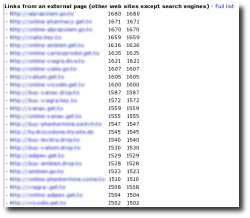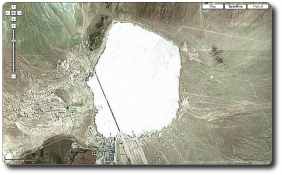Linux to Penetrate Tablets, PDA, Mobile Market

Some of you have possibly heard about the Nokia 770. For those who haven’t, have a look at this snippet from a recent review in the Washington Post.
The Finnish mobile firm had originally expected the Tablet, which runs on Linux-based software, to enter the market before the end of September.
I personally use a Palm handheld and I consider myself an avid Palm enthusiast. Yet, I was deeply disappointed by the move which had a Treo run Pocket PC. To me, this was beyond a simple “deal with the devil” as I also use Linux and I can imagine the implications of such a dangerous pact. Palm were committed to Linux for quite some time, but were recently taken over by a Japanese giant, so the future is uncertain and past promises or planned strategies should now be taken with a grain of salt.
I started to explore alternative paths and the Nokia 770 is one of these. I have just been reminded that it would not be surprising if Nokia dumped that rusty Symbian altogether and implemented a port of the existing GUI to run on top of the Linux kernel.
From recent articles about the Nokia 770, it sure seems as if the codebase will be made available for other devices as well. I believe the device will be ready by Christmas, so expect a homebred Linux distribution for mobile devices soon. It can then be sold to other vendors which will mark yet another revolution — the entry of Linux into the mobile phones, handheld PDA‘s, tablets, etc. First the servers, then the desktop and soon a penguin in everyone’s pocket, Palm included perhaps.
More on Linux-powered PDA’s:
- The Linux PDA Showcase
- The rather pricy PMA-400
- A cheaper PIM alternative
- Linux Pocket-sized Console
The remainder of this item slides off the theme of Linux and discusses Web 2.0-like transitions.
How come nobody has implemented a portable PDA synchronisation method? Many PDA’s these days can establish an Internet connection and very many computers reside in a connected environment with always-on connection. Would it not be rational to implement a Web-based Palm Desktop, for example? One which centalises data in on-line accounts? I still wait for a handheld that integrates with and synchronises with all platforms more seamlessly. The Internet, being open, can easily bridge that gap and assist users from the fuller spectrum of operating systems. Sooner or later, this all will happen.
Cited by: PalmAddict






 Filed under:
Filed under:  Only weeks after
Only weeks after 
 little tour around Google has led me to a questionably out-of-date
little tour around Google has led me to a questionably out-of-date 
 OME decent-scale DoS attacks, carried out by hijacked Windows workstations, have returned to the site. This comes after
OME decent-scale DoS attacks, carried out by hijacked Windows workstations, have returned to the site. This comes after 
 F Windows is ever to be used, it should be standards-compliant and perhaps, just perhaps,
F Windows is ever to be used, it should be standards-compliant and perhaps, just perhaps,  That site is an invaluable resource by all means. 5 years down the line when dual-boot no longer is a necessity to most, we will still be able to recall the days when a different operating system prevailed in this world. Since it’s Web-based, no bytes will be consumed on local storage either.
That site is an invaluable resource by all means. 5 years down the line when dual-boot no longer is a necessity to most, we will still be able to recall the days when a different operating system prevailed in this world. Since it’s Web-based, no bytes will be consumed on local storage either.

 OT many Linux hosts permit SSH access to one’s own Webspace. There are concerns that the extra freedom and flexibility of the *NIX shell might lead to servers going down. If servers are shared, the problem is somewhat magnified and the threat is just not worth it.
OT many Linux hosts permit SSH access to one’s own Webspace. There are concerns that the extra freedom and flexibility of the *NIX shell might lead to servers going down. If servers are shared, the problem is somewhat magnified and the threat is just not worth it.